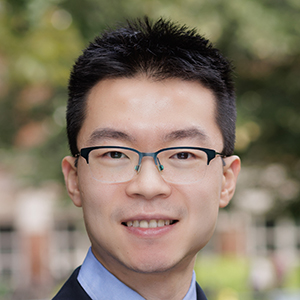 Contributed by Archita Tharanipathy, SASSC Member-At-Large and SAS Newsletter Subcommittee Member
Contributed by Archita Tharanipathy, SASSC Member-At-Large and SAS Newsletter Subcommittee Member
Interview with Dr. Ke Wang, Winner of the 2025 Best Dissertation in Affective Science Award
How do specific positive emotions shape decision-making, and what role does emotion regulation play over time? Dr. Ke Wang explored these questions in his dissertation, Essays on Emotion and Decision Making, with Implications for Policy, completed at Harvard University under the mentorship of Professors Jennifer Lerner, Amit Goldenberg, and James Gross. The dissertation earned him the Best Dissertation in Affective Science Award at the 2025 SAS Annual Conference in Portland, Oregon, earlier this year. His work highlights how appreciation and gratitude can shape our decisions, health, and well-being.
We spoke further with Dr. Wang about his findings, what surprised him most, and where he hopes to see his research moving forward. His insights are below.
Q: What are the central research questions that your dissertation explored?
The central research question my dissertation explored is: what can appreciation do to us? Sometimes that means the straightforward kind of appreciation, like feeling grateful for benefits we receive. Other times it means the harder kind, like seeing hidden gifts and values in challenging situations through the emotion regulation strategy of reappraisal. Across these levels, I looked at how appreciation shapes our health decisions, our moral choices, and our wellbeing in tough conditions.
Q: What led you to focus on gratitude specifically as a key emotion in your work?
William James stated, “The deepest principle in human nature is the craving to be appreciated.” Gratitude is the emotional echo of that craving, and I was curious how far that echo carries into our everyday decisions.
Q: Can you describe the types of data and analysis methods you used across your dissertation?
My work spanned surveys, large-scale secondary data analyses, online experiments, and a longitudinal field experiment.
Q: How did compiling the results of different studies shape your approach when working with this data?
It is encouraging to find converging results with a triangulation of methods.
Q: What findings were more meaningful or surprising to you across the three chapters?
The surprise was how consequential small shifts in appreciation could be. A little gratitude or a brief reframing training changed choices that matter for health, honesty, and well-being. That was meaningful because it showed emotions aren’t background noise, but they’re levers for change.
Q: One chapter found that gratitude reduced tobacco use, while another found it increased cheating when it benefited others. How do you make sense of these outcomes?
They’re consistent with appraisal theories of emotion. Gratitude shifts how we appraise situations, including what we value most in the moment. It can push health above pleasure, or generosity above rules. Gratitude isn’t an unqualified good. We should be mindful about the context.
Q: What are the key takeaways from the chapter regarding brief reappraisal interventions with sustained benefits?
Teaching workers to reappraise challenges via a short online training didn’t just help in the moment, but had lasting impacts on well-being and workplace outcomes. That suggests reappraisal is a skill with staying power, not just a quick fix. However, the effects are small and we need a holistic approach to support workers’ wellbeing.
Q: How do you hope your findings will be applied to real-world contexts?
I’d love to see emotions used more thoughtfully for health behavior change. I also hope organizations and schools consider emotion regulation training as part of life skill training.
Q: How has this dissertation shaped your future research directions? Where are you excited to explore next?
This dissertation has deepened my interest in understanding the power of appreciation. I’m especially excited to investigate the implications of appreciation in other contexts, including when we might appreciate technology such as AI.
